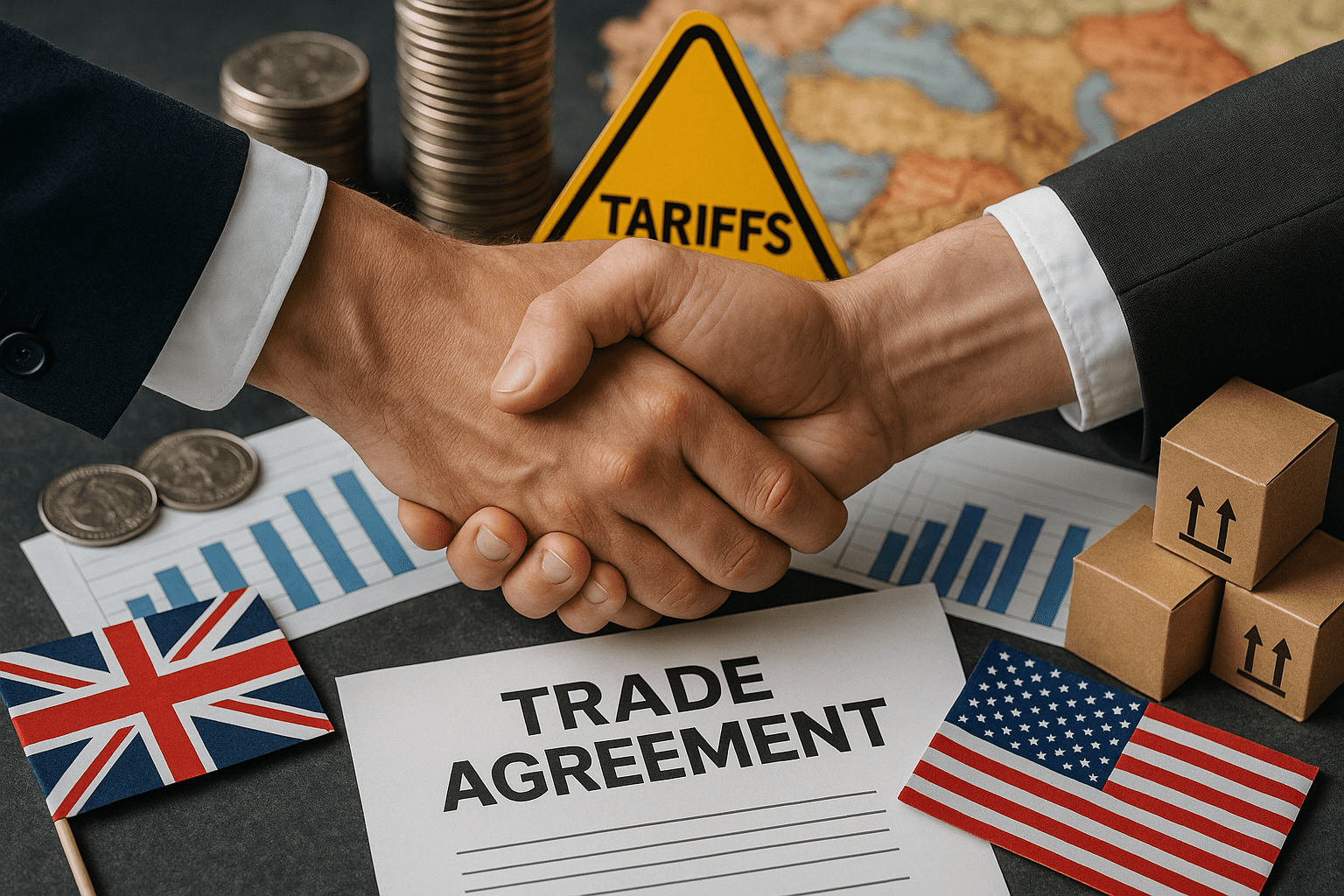We speak with Igor Jakomin, Deputy CEO at CargoX – Provider of the CargoX Platform for Blockchain Document Transfer (BDT) with over 113,000 active companies using the platform
Can you tell us about the history of CargoX?
CargoX emerged in early 2018 as an innovative provider of electronic trade document creation and transfer services, based on the neutral, public blockchain technology. CargoX was laser-focused on creating a blockchain bill of lading that could be transferred instantly, at a much lower cost, and much more securely compared to traditional paper bills of lading that are sent with courier services around the globe. The CargoX eBL solution quickly evolved into the CargoX Platform for Blockchain Document Transfer (BDT) to accommodate more document types, workflows, and integration capabilities.
What services and products does CargoX provide?
CargoX provides electronic trade document creation, transfer, and digital storage services on the CargoX Platform for Blockchain Document Transfer (BDT). CargoX also offers consultancy for electronic trade document processing implementation to governmental agencies and regulators, corporations, and specialised shipping industry enterprises.
What can you tell us about the CargoX platform?
The CargoX Platform for Blockchain Document Transfer (BDT) is used by more than 113,000 companies around the world in their daily operations in global trade, trade finance, and customs compliance activities, as well as by governmental agencies and regulators who validate compliance for import/export activities.
The CargoX Platform for Blockchain Document Transfer (BDT) is used to create and transfer more than 65 types of documents in structured and unstructured formats, in linear transfer between business partners, or for the purpose of governmental customs filings with multiple agencies and regulators processing documents at the same time.
The CargoX Platform uses the neutral, public blockchain Ethereum and Polygon/Matic layer 2 blockchain boost technology to validate document originality and transfer between the parties.
Documents on the CargoX Platform are tokenised with ERC-721 NFT non-fungible token technology, and stored with the highest level of encryption security on a distributed InterPlanetary File System.
Many businesses still rely on paper bills of lading. Why do you recommend they switch to electronic bills of lading (eBLs)?
This allows them to completely eliminate paper-based delays, reduce cost of document transfer and compliance, and reduce operating costs from processing, printing, storing, archiving, retrieving, and securing paper documents. They can also avoid demurrage costs arising from paper documents being mislaid or even lost. The CargoX Platform makes it possible for companies to adopt the distributed team processing philosophy while maintaining strict control over who can perform which actions on global trade documents. And last but not least – electronic trade documents, especially the electronic bill of lading, are becoming a standard in global trade and trade finance, and they will be a prerequisite for conducting efficient business and global trade.
What makes CargoX different from other companies in the market?
Today, the CargoX Platform for Blockchain Document Transfer (BDT) is used by more than 113,000 companies around the world and more than 5 million electronic trade documents have been created and sent through it.
CargoX based its platform on the neutral, public blockchain distributed digital ledger called Ethereum. Over the past six years it has proven itself in providing a public, transparent ledger of funds worth billions of dollars, and it is therefore well established as a trusted platform.
Besides corporate use, CargoX is the most specialised among electronic trade document providers for integration in governmental workflows for customs processing and compliance verification.
How does CargoX offer protection against cyber security risks?
All documents are encrypted and all document validation and document transfer between business partners and governmental entities is protected using highly secure blockchain keys.
How does CargoX help businesses to cut costs?
Companies save time and money by using digital signatures and digital technologies. There is no more printing, scanning, signing, putting in envelopes, sending with post or couriers, or storing mountains of paper documents at different locations, as well as no more time lost for searching for and retrieving these paper documents, as well as maintaining paper business archives.
“What are the implications of the recent integration of the Electronic Trade Document Act into UK legislation on CargoX’s operations? Additionally, what potential opportunities or challenges does this present for the company?”
The introduction of the Electronic Trade Documents Act is a watershed moment in this journey towards an interconnected trading ecosystem. The Act’s creation was an amalgamation of insights, expertise and collaboration. Industry leaders, including CargoX, actively engaged with the English Law Commission. The objective was clear: weave a framework that aligns the rapid strides of digital technology with the foundational pillars of trade legislation. It wasn’t merely about bridging two worlds, but also ensuring they could grow and innovate cohesively.
The ETDA provides the legal interpretation of what the CargoX Platform – and some other providers – have been building all along. A technological ecosystem for the most important business documents in the world that enable global trade and prosperity.
Companies in the UK can already sign up on the CargoX Platform and start using it for electronic bills of lading and other electronic trade documents. In fact, more than 3000 companies from the UK have already signed up on the Platform, and more than 13.000 companies from the Commonwealth countries. They can already create and exchange electronic trade documents – at a much greater speed, lower cost, and higher reliability, compared to paper courier services.
Cargox implementation in Egypt for the NAFEZA single window for international trade facilitation
In 2021 the Government of the Arab Republic of Egypt integrated the CargoX Platform with their NAFEZA single window for international trade facilitation as a blockchain document transfer gateway for the purpose of Advance Cargo Information (ACI) processing by the Egyptian Customs Authority. The effects were instantaneous.
- Revenue collection immediately increased by 13%.
- Sea freight ports have integrated this technology, with air freight ports optionally available (total 30+).
- More than 5+ million documents on blockchain have been successfully transferred and processed.
- Average cargo release time was shortened from 29 days to 9 days (and getting shorter), with a notable reduction in container demurrage and storage fees.
- Compliance costs were slashed for shippers in the maritime sector from more than US$600 to US$165 or less.
- Reduction of document tampering/loss cases.
- Implementation was a major success after a 6-months voluntary transition period, with no outages or down-time registered in the first 2 years of operation.
Together with Enigio, a fellow provider of electronic trade document solutions, CargoX has engineered and successfully demonstrated the ability to exchange original electronic trade documents. The FIATA electronic bill of lading exchanged was standardised by the International Federation of Freight Forwarders Associations.
As a member of the UK’s Centre for Digital Trade Innovation’s (C4DTI) working group, whose aim is to seek out and remove obstacles to trade digitalisation, Lloyds Bank pointed out its interoperability requirements to fellow members CargoX and Enigio.
The two companies were given the task of demonstrating genuine system interoperability. Having reviewed the proof of content, Lloyds Bank rests assured that this novel technology solution can help the UK’s transition towards digital trade documentation, as well as build trust among the global trade community when it comes to the interoperability of eBL platforms.
This breakthrough means that the transfer of original documents between two tech solution providers can be carried out seamlessly, without disrupting the essential chain of trust, which is essential for the electronic handling, control and transfer of document ownership. Conclusively, end-users are the ones who benefit the most, as they progress further towards the simplified use of digital platforms for Electronic Trade Documents, thanks to this proof of concept.
Nick Davies, Director of C4DTI said: “This early application of digital interoperation between systems under the terms of the ETDA shows how the benefits of digitalisation can spread to the end users of such systems. This will help in our development of the model for all such systems going forward”.
Patrik Zekkar, CEO of Enigio, believes that “the way forward for interoperability is to standardise the way in order for two or more solutions, supported by ETDA, to also be able to execute in a digitalised trade transaction by switching originals. This will justify a completely new sustainable collaborative business model in global trade.”
Full development of the service for production will be completed soon and will enable a far greater, wider and faster reach in the industry than alternative stand-alone interoperability efforts.
“This achievement signifies true technical interoperability as underscored by this achievement in enabling seamless communication between the public blockchain, CargoX, and Enigio’s hybrid dedicated blockchain, Enigio,” said Peter Kern, VP Commercial of CargoX.
Thanks to this service, corporate and institutional users in global trade will now be provided with a completely new level of efficiency and security in electronic trade document exchange.
“Until now, electronic trade document platforms have been independent and acting as isolated islands where trust was built only between the companies using the same platform. This new interoperability feature now assures that the users of one platform can send electronic trade documents with complete trust and features of possession to users of the other medium – so the originals are functionally switched, without losing trust in the original document,” said Peter Kern,
Gwynne Master, Managing Director, Lending & Working Capital, Lloyds Bank said: “In the world of digital trade, a Bill of Lading is the most complex document to digitise. The original document passes through many parties for any given transaction, and the growing variety of standalone platforms used to create the digital originals adds further complexity. This new technology solution from Enigio and CargoX will make a significant impact on the industry’s efforts to become more secure, efficient, and sustainable.”
Read more news and exclusive features in our latest issue here.
Never miss a story… Follow us on:
International Trade Magazine
@itm_magazine
@intrademagazine
Media Contact
Joseph Clarke
Editor, International Trade Magazine
Tel: +44 (0) 1622 823 920
Email: editor@intrademagazine.com





